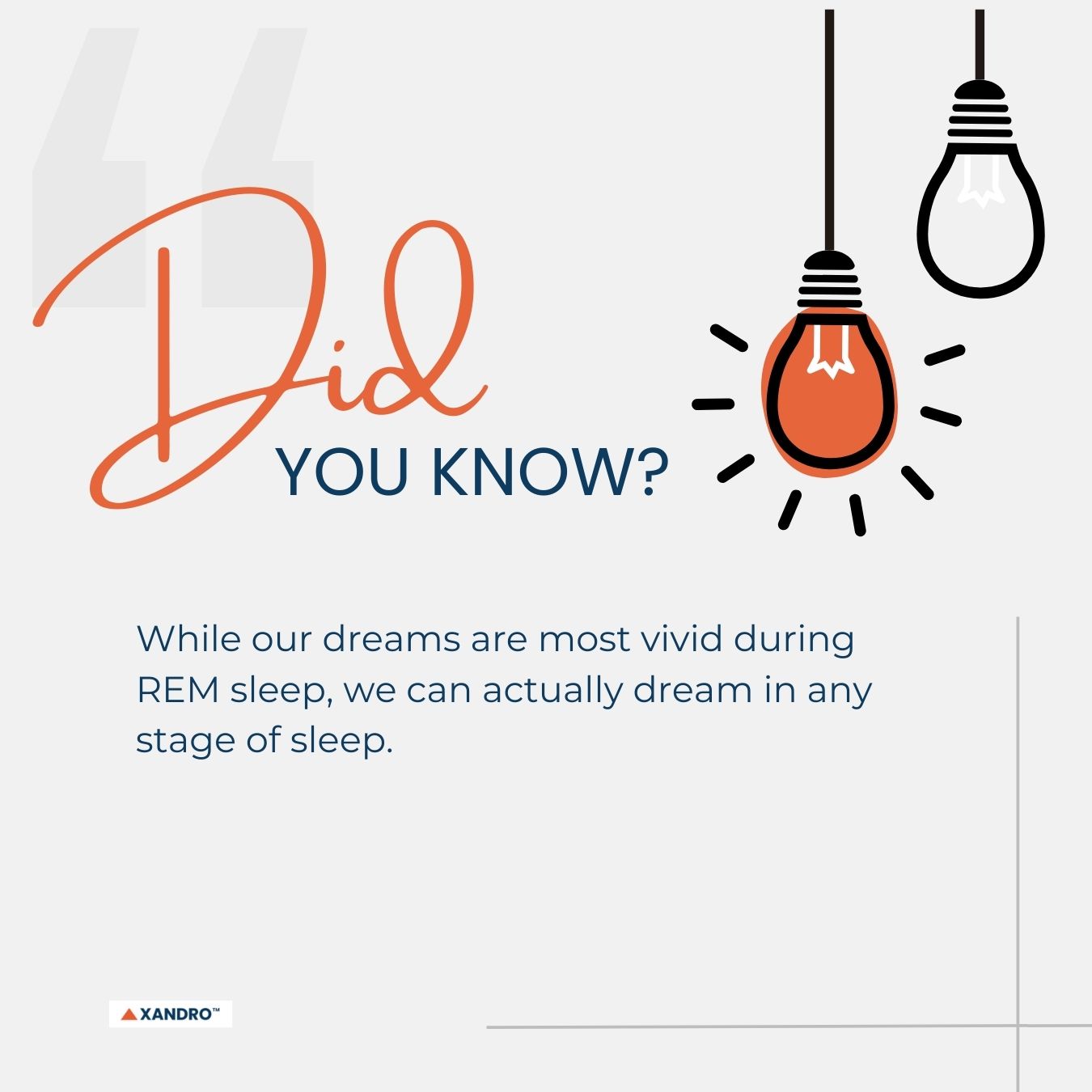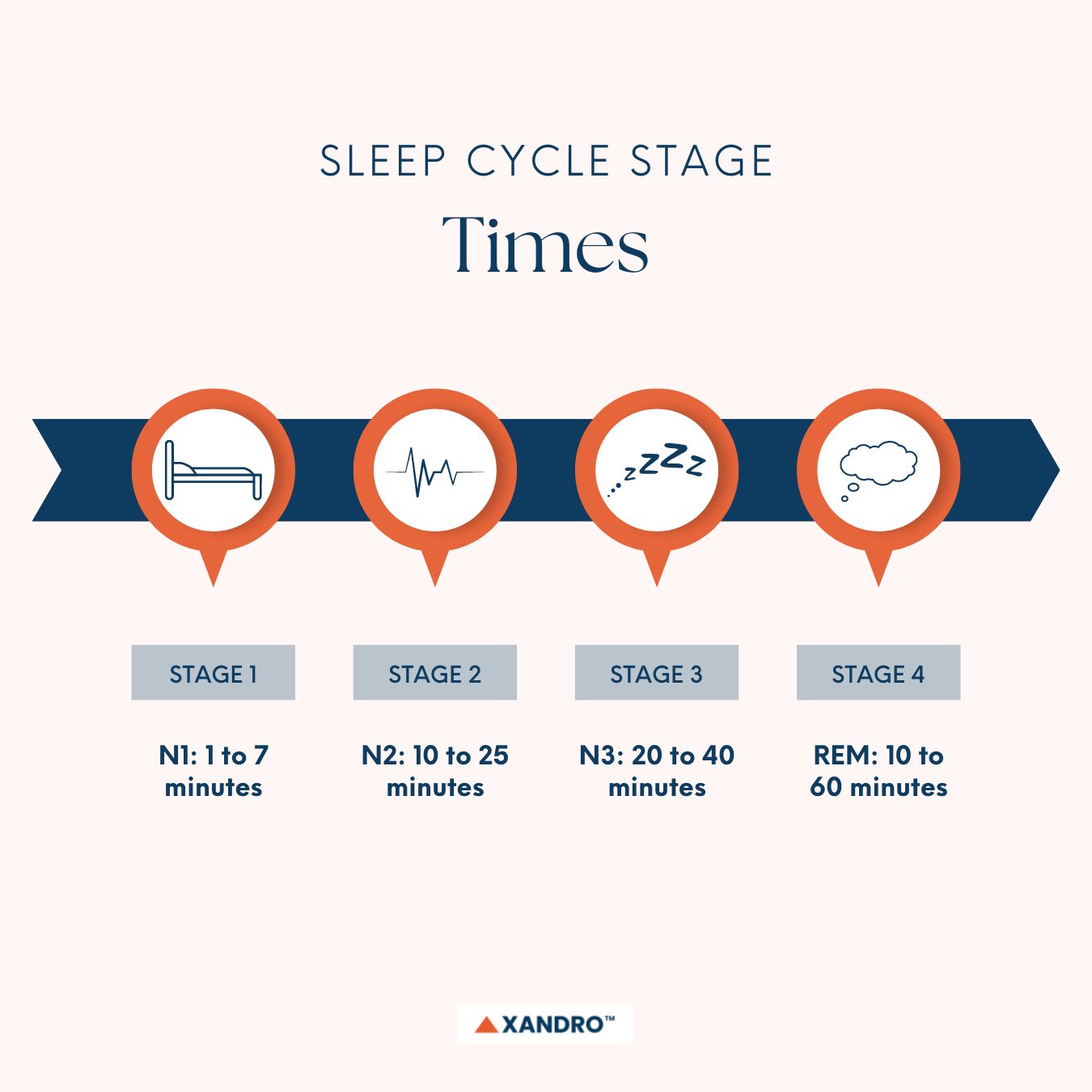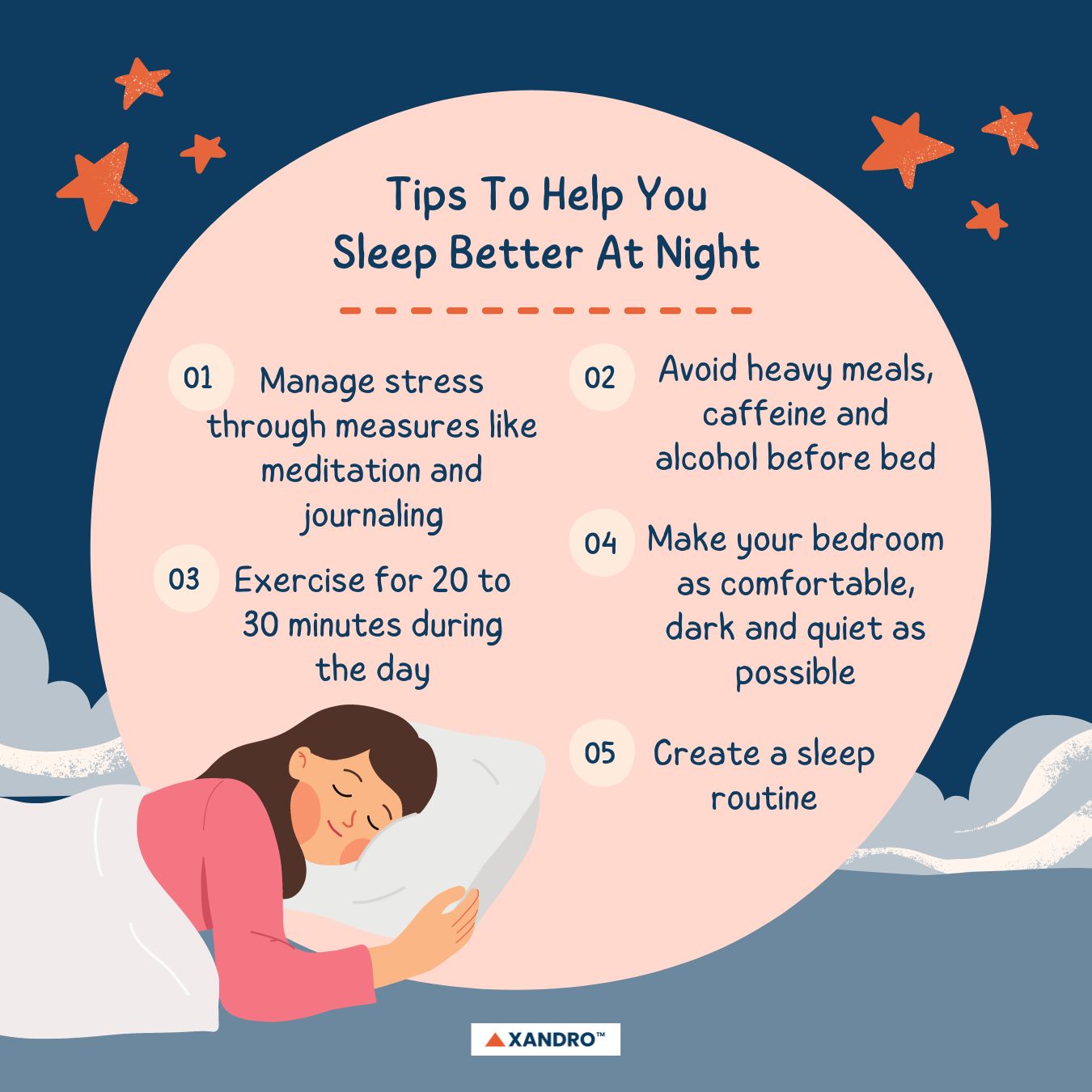The Different Types of Sleep
22nd Mar 2024
What Are The Different Stages of Sleep
We all sleep and we all need to sleep. It’s incredibly essential for our development and then for our bodies to maintain themselves as we get older.
Sleeping is a process, however, and it’s quite interesting to learn about the different stages we go through each night, especially if we’re trying to fix our sleeping habits. These stages allow our brain to relax and reset itself from the day and also help our bodies go through various functions.
Further reading: What happens if I don’t get enough sleep?
So, how many stages of sleep are there? This article will cover
What Are The 4 Stages of Sleep in Order?
Throughout our sleep, we’re actually going through cycles. These cycles consist of four stages: N1, N2, N3 and REM, and once the cycle ends, it repeats — multiple times throughout the night. Some people count being away as the fifth stage of the sleep cycle.
N1, N2 and N3 are non-rapid eye movement stages, while REM is known as a rapid eye movement stage. We spend about 75 per cent of sleep in the NREM (N1, N2, N3) stages and about 25 per cent in REM sleep.
Let’s go over them!
Stage 1
This is when a person falls asleep. Your body is not yet fully relaxed and your body and brain activity begins to wind down with periods of brief movement. If someone is in this stage of sleep, it’s easy to wake them up but if undisturbed, they quickly move into the next stage. As the night progresses and you go through the cycles, if undisturbed, we don’t spend much time in N1 sleep.
Stage 2
Here, our body enters a more relaxed state, where our breathing and heart rate slows, eye movement stops, our temperature drops and our muscles relax. While our brain activity slows, we do actually have moments of activity which helps against being woken up. As each cycle passes, we spend longer in the N2 stage. This is the stage where we usually spend half of our sleep.
Stage 3
Known as deep sleep, the N3 stage is harder to wake someone up in and this is where our pulse, breathing rate and muscle tone decrease and relax even further. This stage is also known as slow-wave sleep or delta deep as our brain activity has a pattern known as delta waves.
This stage is considered essential for restorative sleep, where our body recovers, grows, strengthens our immune system and helps other key body processes. It’s even thought that deep sleep helps insightful thinking, creativity and memory. Compared to stage two where we spend longer in the stage as the night progresses, we actually spend less time in N3 as the night progresses.
REM Sleep
The last stage of our sleep is REM, where our brain activity nearly reaches levels as though we were awake. For the body, though, here our body experiences a temporary paralysis of the muscles known as atonia, except for our eyes (hence why it’s known as rapid eye movement sleep, as our eyes can be seen moving rapidly under our eyelids) and the muscles that control our breathing — thankfully.
This stage is thought to be essential for our cognitive functions, such as our memory, learning and creativity. It’s also where we have vivid dreams. Typically, you don’t enter REM sleep until you have been asleep for around 90 minutes, but as the night progresses, you will spend longer in the REM stage. Compared to the first cycle of REM, which might last minutes, you can be in REM sleep for an hour in the later sleep cycles.

What stage of sleep do you dream? We can dream at any stage of sleep, but they’re less common in the first three stages. Dreams are most common and most vivid in REM sleep due to our heightened brain activity.
How Many Sleep Cycles Per Night?
Generally, we go through four to six sleep cycles each night, although the duration of each of these stages may differ. On average, a sleep cycle lasts about 90 minutes, each one changing in length.
The first is typically between 70 to 100 minutes, while the later ones are about 90 to 120 minutes, and, as mentioned, the amount of time we spend in each stage of the sleep cycle also changes throughout the night.
What Are the Sleep Cycle Stages Times?
These can actually differ due to a range of reasons, such as due to your age — for example, newborns spend a lot of time in REM sleep —, whether you have drunk alcohol, how your sleep has been recently or whether you have a sleep disorder.
A normal sleep cycle, however, generally goes like this:
- Stage 1 (N1): 1 to 7 minutes
- Stage 2 (N2): 10 to 25 minutes
- Stage 3 (N3): 20 to 40 minutes
- Stage 4 (REM): 10 to 60 minutes

FAQ: What Stage is REM Sleep?: When you hear about sleep stages, you often hear the term REM sleep. This is stage four and the end of our sleep cycle. REM sleep is where you have vivid dreams and if you’ve ever thought, ‘What does it mean if I get no REM sleep?’ then know that you might experience fatigue, depression and cognitive functions throughout the day.
Is REM sleep deep sleep? REM sleep is different from deep sleep. Deep sleep is stage three (N3), but more on that below.
Is REM or Deep Sleep Better?
Stage three of our sleep cycle goes by various terms: N3, slow-wave sleep, delta sleep and deep sleep. While all stages are important, during deep sleep, a range of functions occurs in our bodies, such as our muscles relaxing, tissue growth and repair, essential hormones releasing and an increase in blood supply to our muscles.
If we don’t enter or if we’re missing deep sleep, these cannot occur and the effects of sleep deprivation may occur, so it’s incredibly important. REM is also important for our health, as this stage is needed for dreaming and possibly to help you process emotions.
How to increase slow wave sleep naturally?
If you find yourself waking up between sleep cycles at night, there are different strategies you might want to try to help prevent you from breaking the sleep cycle.
- Work on managing your stress
- Create a sleep routine
- Sleep in a room that’s dark, quiet and at a comfortable temperature
- Exercise for 20 to 30 minutes during the day
- Avoid caffeine, alcohol and nicotine close to bedtime
- Avoid heavy meals before bedtime
- Leave distractions outside the room

What is a healthy sleep cycle?
A healthy sleep cycle is one where we go through all the stages of sleep, allowing our body and brain the time it needs to develop and relax. If we don’t go through the various stages, it can impact our cognitive functions, emotions and physical health.
End Note
Looking to help improve your sleep cycle?
Read more about how Shoden® ashwagandha can help with sleep, as well as the benefits of magnesium on sleep!
Grab your hands on both supplements, here:
Shoden® Ashwagandha and Magnesium Glycinate.
